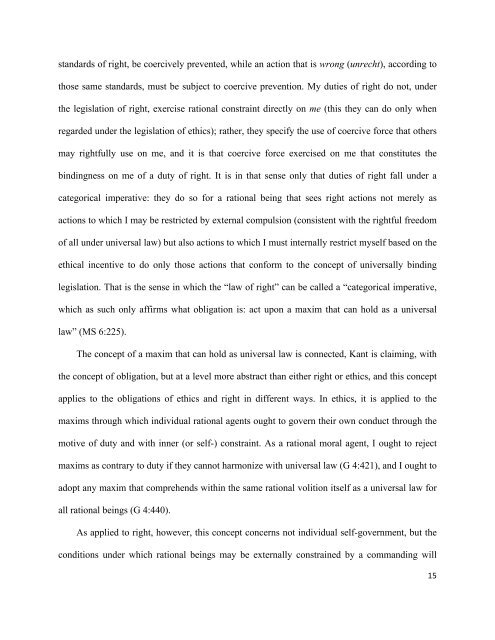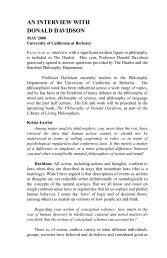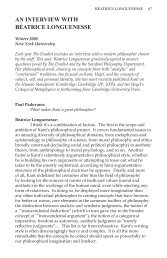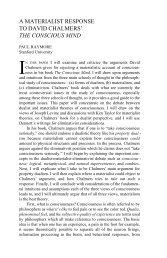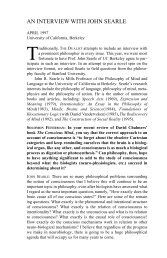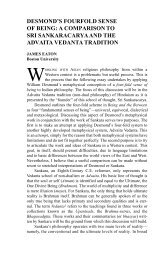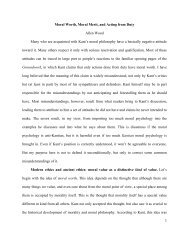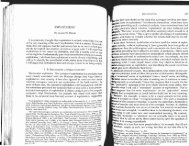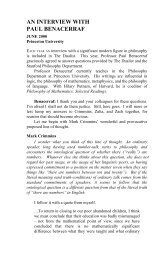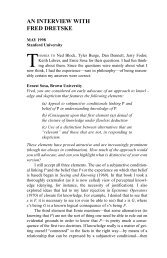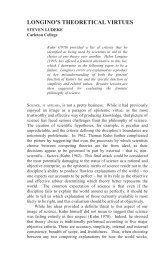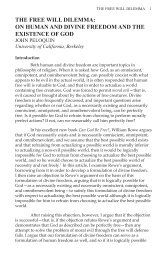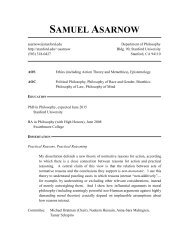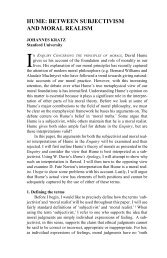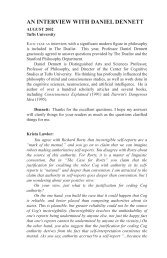The Independence of Right from Ethics Allen Wood Right and ethics ...
The Independence of Right from Ethics Allen Wood Right and ethics ...
The Independence of Right from Ethics Allen Wood Right and ethics ...
Create successful ePaper yourself
Turn your PDF publications into a flip-book with our unique Google optimized e-Paper software.
st<strong>and</strong>ards <strong>of</strong> right, be coercively prevented, while an action that is wrong (unrecht), according tothose same st<strong>and</strong>ards, must be subject to coercive prevention. My duties <strong>of</strong> right do not, underthe legislation <strong>of</strong> right, exercise rational constraint directly on me (this they can do only whenregarded under the legislation <strong>of</strong> <strong>ethics</strong>); rather, they specify the use <strong>of</strong> coercive force that othersmay rightfully use on me, <strong>and</strong> it is that coercive force exercised on me that constitutes thebindingness on me <strong>of</strong> a duty <strong>of</strong> right. It is in that sense only that duties <strong>of</strong> right fall under acategorical imperative: they do so for a rational being that sees right actions not merely asactions to which I may be restricted by external compulsion (consistent with the rightful freedom<strong>of</strong> all under universal law) but also actions to which I must internally restrict myself based on theethical incentive to do only those actions that conform to the concept <strong>of</strong> universally bindinglegislation. That is the sense in which the “law <strong>of</strong> right” can be called a “categorical imperative,which as such only affirms what obligation is: act upon a maxim that can hold as a universallaw” (MS 6:225).<strong>The</strong> concept <strong>of</strong> a maxim that can hold as universal law is connected, Kant is claiming, withthe concept <strong>of</strong> obligation, but at a level more abstract than either right or <strong>ethics</strong>, <strong>and</strong> this conceptapplies to the obligations <strong>of</strong> <strong>ethics</strong> <strong>and</strong> right in different ways. In <strong>ethics</strong>, it is applied to themaxims through which individual rational agents ought to govern their own conduct through themotive <strong>of</strong> duty <strong>and</strong> with inner (or self-) constraint. As a rational moral agent, I ought to rejectmaxims as contrary to duty if they cannot harmonize with universal law (G 4:421), <strong>and</strong> I ought toadopt any maxim that comprehends within the same rational volition itself as a universal law forall rational beings (G 4:440).As applied to right, however, this concept concerns not individual self-government, but theconditions under which rational beings may be externally constrained by a comm<strong>and</strong>ing will15


